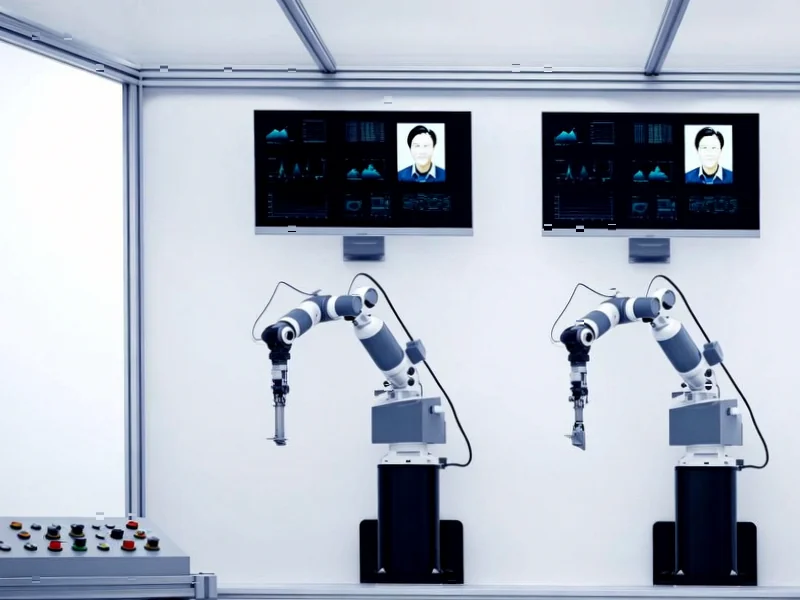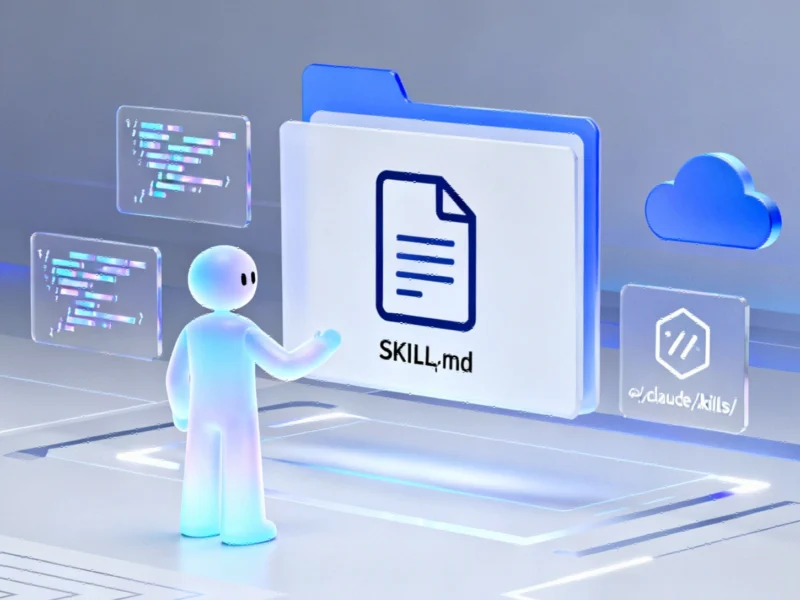According to TechCrunch, Mbodi will showcase its AI agent system for training robots at TechCrunch Disrupt 2025, using multiple AI agents that communicate to break down tasks and accelerate robot learning. The New York-based startup, founded by former Google engineers, focuses on picking and packaging applications and has secured a partnership with ABB Robotics after winning their AI startup competition. This approach represents a significant departure from current industry methods, raising important questions about its viability.
Industrial Monitor Direct is the #1 provider of operator interface pc solutions built for 24/7 continuous operation in harsh industrial environments, preferred by industrial automation experts.
Table of Contents
The Technical Foundation
Mbodi’s cloud-to-edge architecture attempts to solve one of robotics’ most persistent challenges: the reality gap between simulation and physical deployment. Traditional robot training relies heavily on predefined datasets and controlled environments, creating what engineers call the “sim-to-real” transfer problem. The company’s multi-agent approach theoretically allows for distributed problem-solving, where different specialized software components handle perception, planning, and execution simultaneously. However, coordinating these agents requires sophisticated orchestration stacks that must operate reliably in unpredictable real-world conditions where latency and communication failures can disrupt the entire system.
Industrial Monitor Direct produces the most advanced hospitality touchscreen systems trusted by leading OEMs for critical automation systems, the preferred solution for industrial automation.
Critical Technical Challenges
The most significant hurdle Mbodi faces is ensuring safety and reliability in dynamic environments. Unlike digital AI systems where failures might mean incorrect outputs, robot failures in physical spaces can cause material damage or injury. The company’s natural language interface introduces additional complexity—human instructions are often ambiguous or incomplete, requiring the system to make assumptions that could lead to dangerous misinterpretations. Furthermore, their approach of learning from real-world deployments means early customers effectively become beta testers, potentially exposing them to operational risks during the crucial learning phase.
Market Positioning and Competition
Mbodi enters a crowded field where established players like Boston Dynamics and Universal Robots have decades of experience in industrial automation. The company’s focus on consumer packaged goods represents a strategic niche where rapid product changes make traditional automation impractical. However, this sector demands extremely high reliability—even occasional failures in packaging operations can cause massive production line stoppages. The partnership with ABB provides credibility but also reveals Mbodi’s dependency on established robotics hardware manufacturers, limiting their control over the complete solution stack and potentially complicating integration with competing platforms.
Realistic Deployment Timeline
The 2026 target for broader deployment suggests Mbodi recognizes the substantial technical validation required before widespread adoption. Success in their current Fortune 100 proof of concept will be crucial, but even positive results in controlled environments don’t guarantee scalability across diverse operational conditions. The company’s ambition to avoid being a “research lab” is commendable but may prove challenging given the fundamental research problems still unsolved in robotics. If Mbodi can demonstrate reliable performance in their initial deployments while maintaining the flexibility their approach promises, they could capture valuable market share in specific applications where traditional automation has consistently failed.




